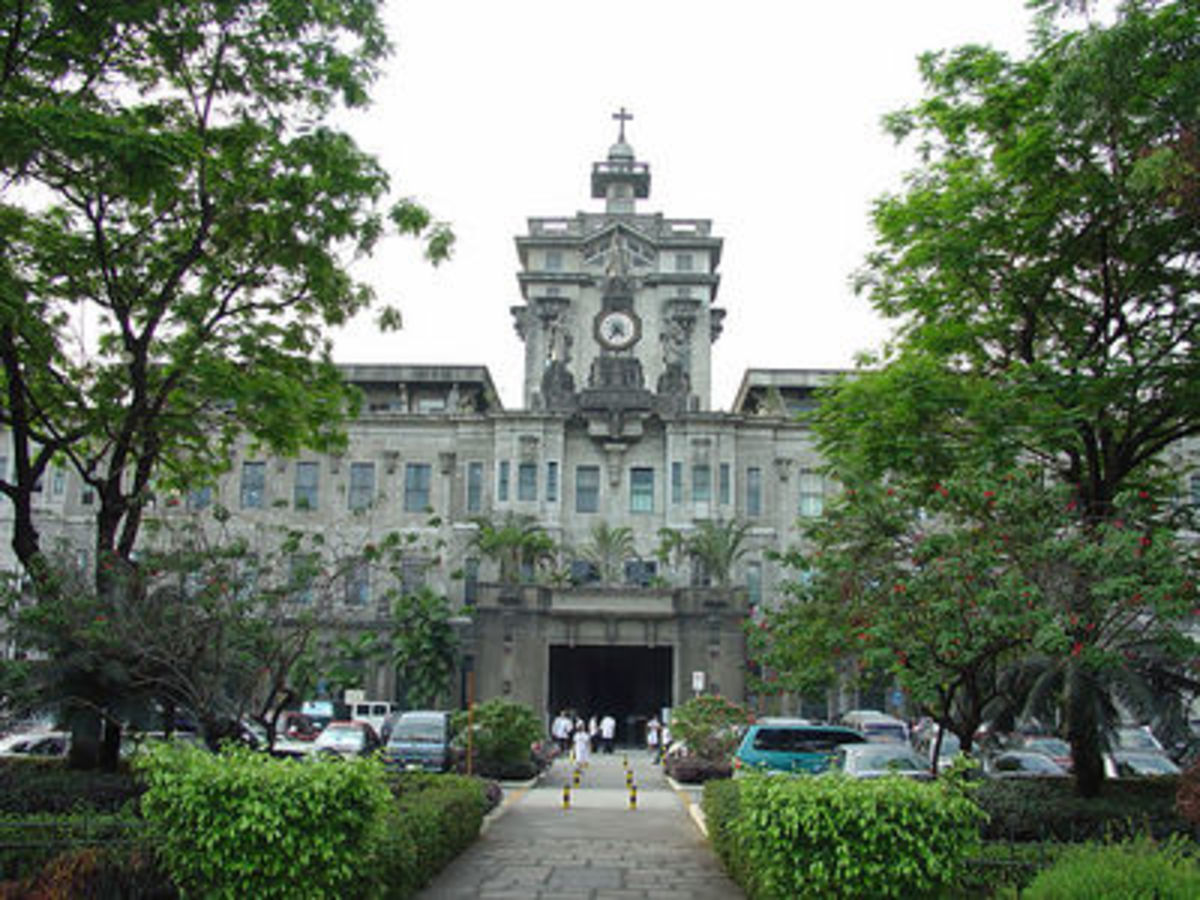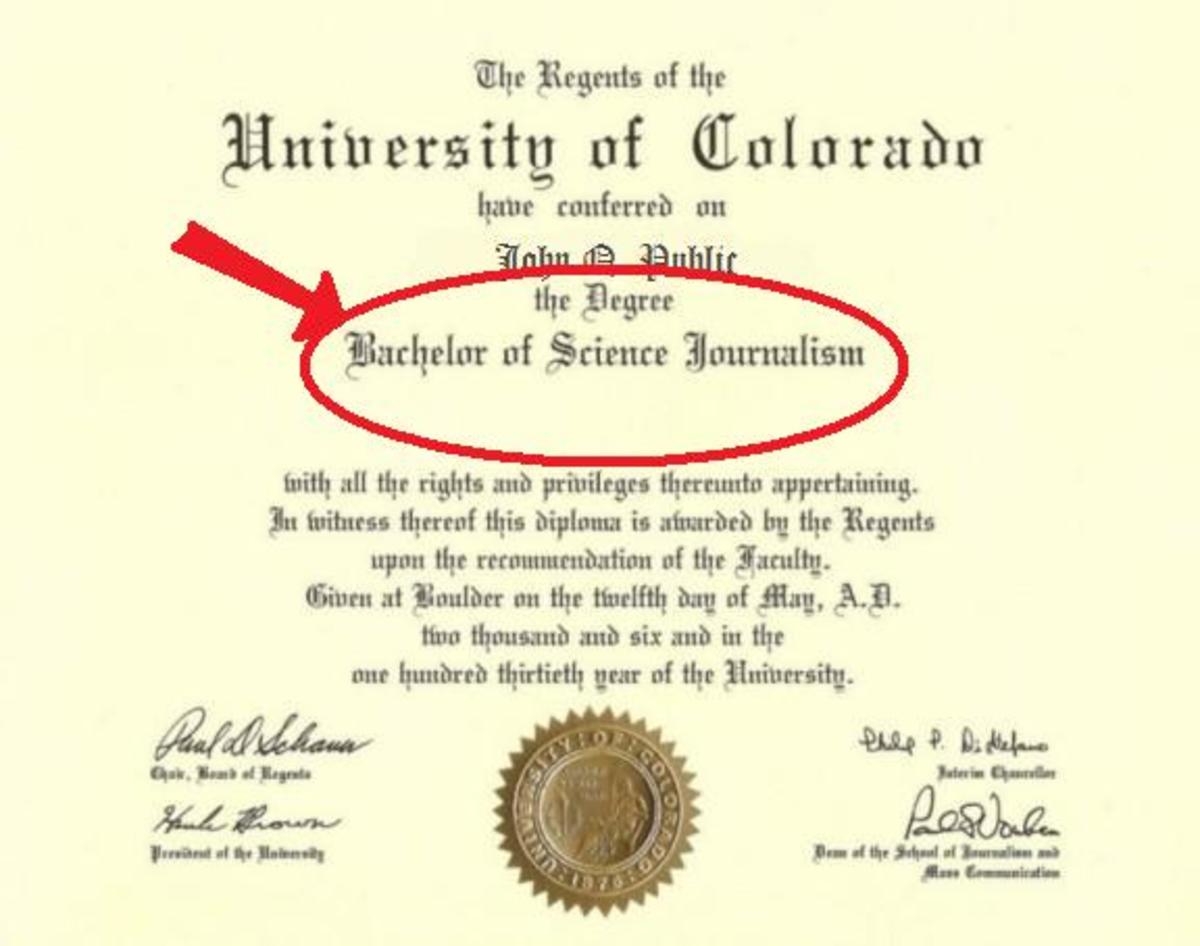The Importance of Historically Black Colleges and Universities in America
There are 105 Historically Black Colleges and Universities (HBCUs) in the United States. According to The Higher Education Act of 1965, an HBCU is:
“…any historically black college or university that was established prior to 1964, whose principal mission was, and is, the education of black Americans, and that is accredited by a nationally recognized accrediting agency or association determined by the Secretary [of Education] to be a reliable authority as to the quality of training offered or is, according to such an agency or association, making reasonable progress toward accreditation.”
Although HBCUs were established to provide an education to Black students at a time when Blacks were forbidden from entering any other institution, HBCUs have maintained policies that do not exclude applicants based on race, ethnicity, or religion. Any claims that suggest HBCUs only admit Black students or would not admit students who are not Black is simply false. "HBCUs have always enrolled students of all races." (Butrymowics.).
Because of their historical significance, their commitments to quality education, and the impact of their alumni in all segments of American culture, HBCUs should be valued and supported.
Langston Hughes - Novelist/Poet
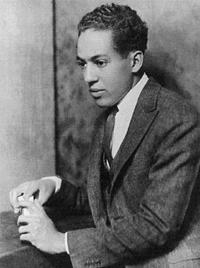
The History of HBCUs
It is well known that prior to the Civil War, the majority of African-Americans were enslaved and as such were forbidden by law to either read or write; in fact, no educational structure existed for them. The first school, The Institute for Colored Youth, in Cheyney, Pennsylvania, was established in 1837 (now Cheyney University). Two more followed, namely, Ashmun Institute, in Pennsylvania (1854) (now Lincoln University), and Wilberforce University, in Ohio (1856), named for the abolitionist, William Wilberforce. Despite their titles of "university" or "institute," these institutions provided primary and secondary education. It was not until the early part of the 20th century that the institutions provided for post-secondary education. These three universities are still in operation today. (U.S. Department of Education).
In 1865, following the Civil War, Congress established The Bureau of Refugees, Freedmen, and Abandoned Lands, simply known as The Freedmen's Bureau, with the intention of helping former slaves transition to freedom in the South. The original plan provided for assistance for one year but it was extended by Congress. With a clear goal, the Bureau set out to enable the former slaves “to become self-supporting citizens of the United States and to aid them in making the freedom granted…available to them and beneficial to the republic.” Critical to making former slaves "self-supporting" must include educating them. (H.R. 613). Despite Congressional attempts to provide equality among its citizens (13th, 14th, and 15th Amendments, and the passing of the Civil Rights Acts of 1866 and 1875, judicial rulings virtually nullified the work of Congress. The greatest nemesis slammed the door shut on any semblance of equality when, in 1896, the Supreme Court's decision in Plessy v. Ferguson sanctioned the states' practice of institutional segregation.
Institutionalized segregation was pervasive at the states' level, from 1849 to 1950, in excess of 100 years. Commonly known as "Jim Crow," these statutes forbid African-Americans from integrating with white society nor could they participate economically, as they were banned from white businesses; banned from attending white churches; denied by law access to medical care by white physicians and nurses; denied entry into white residential areas; and were not permitted to attend public schools, colleges, and universities. Therefore, it became necessary to create these educational institutions and, subsequently, the professions and businesses for their own communities. (Lugo.).
Historically and currently, according to the U.S. Department of Education, "[t]hese private and public institutions mutually served the important mission of providing education for teachers, ministers, lawyers, and doctors for the black population in a racially segregated society."
The Top 10 HBCUs in Order of Ranking
Ranking
| HBCU
| City/State
| Date Est.
|
|---|---|---|---|
1
| Spelman College
| Atlanta, GA
| 1881
|
2
| Howard University
| Washington, DC
| 1867
|
3
| Morehouse College
| Atlanta, GA
| 1867
|
4
| Hampton University
| Hampton, VA
| 1868
|
5
| Tuskegee University
| Tuskegee, Tennessee
| 1881
|
6
| Xavier University of Louisiana
| New Orleans, LA
| 1915
|
7
| Fisk University
| Nashville, TN
| 1866
|
8
| Florida A & M University
| Tallahassee, FL
| 1887
|
9
| Claflin University
| Orangeburg, SC
| 1869
|
10
| North Carolina A & T State University
| Greensboro, NC
| 1891
|
(U.S. News & World Report. "Historically Black Colleges and Universities Ranking." 2015.).
HBCUs By The Numbers
- Number of HBCUs Nationwide: 105
- Average Individual School Enrollment: 4,536
- Average Annual Tuition: $13,871
(The White House).
Lionel Richie - Recording Artist/Songwriter
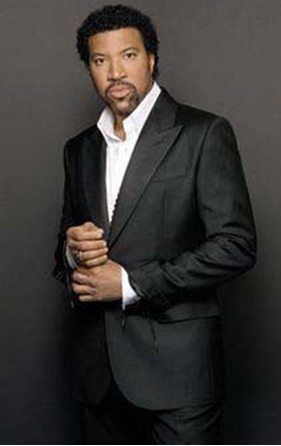
The Institutional Effectiveness of HBCUs
Most examinations of the institutional effectiveness of HBCUs focused on matriculation rates and wage earnings. While these rates were high during the 1970s, both rates decreased by the 1990s. In twenty years, earnings by HBCU graduates were down by 20 percent. (Fryer and Greenstone.). Still, as most in academia and education administration will agree, these two factors alone are not indicative of an institution's overall effectiveness.
There are many factors that can influence graduation rates and wage earnings, most significantly, the overall economy of the nation. Similarly, there may be room for argument that many college graduates make the conscious decision to work with community organizations for lower pay rather than pursuing Fortune 500 careers. Furthermore, a major problem in reviewing these studies is that the studies are often conducted in a vacuum given that they rarely contain a comparison to comparable non-HBCU overall matriculation rates and wage earning potential. Studies compare the success of African-American students in HBCUs to those at non-HBCUs. Race should not be a determining factor in these studies because, overall, students make decisions to attend a college on a myriad of factors including student-teacher ratio, cost and the availability of financial aid, scheduling and field of study, admissions policies, location, an institution's reputation, familial connection to the institution (legacy), etc. The average student that attends an Ivy League institution is likely to be very different from the one who decides on a community college; therefore, it is likely that the average student at an HBCU is different from the one who is at a non-HBCU. As noted in a relative study:
"...equally developed ability among students interested in science predicts equal persistence regardless of ethnic or racial affiliation" and "HBCUs have a strong record of [matriculation] more so than more elite, predominantly white institutions, despite student bodies that are on average much less well prepared than black students in elite institutions." (Rogers, Strentra, et al.).
More importantly, the same study found, that despite the fact that HBCU enrollees have low SAT scores and high school GPAs, these institutions are responsible for 40 percent of black engineers with only 20 percent of black enrollment. Furthermore, "the top 21 undergraduate producers of blacks with doctoral degrees were HBCUs, and none of the highly successful schools were among the 30 most selective academic institutions." (U.S. Commission on Civil Rights). It can be said that if Blacks are holding a doctoral degree, it is likely granted by an HBCU. Undoubtedly, HBCUs are critical to the educational success and, subsequently, maintaining the presence of talented and qualified Black professionals in American society.
It is important to understand that SAT scores and high school GPAs are not necessarily indicative of a student's ability to perform at the college level, which is why, today, educational institutions make admissions decisions using a more holistic approach. Likewise, an institution's admissions policy of its willingness to enroll students with lower SAT scores and high school GPAs is not indicative of the competitiveness of its degree programs. The use of both of these criteria for college admission has been highly criticized for biases among economic classes, culture, race, and ethnicity.
One of the most significant determinants of institutional effectiveness is student activism. According to a 2007 study, HBCU students are more likely "to be engaged in social, political, and philanthropic activities." (Fryer and Greenstone.). Furthermore,
"[s]tudents attending HBCUs appear to demonstrate increased charitable giving, political participation, religious participation, and propensity to major in the physical sciences compared with those who went to traditionally white institutions." (U.S. Commission on Civil Rights.).
Why are these factors important in determining institutional effectiveness? The answer can be found within the opinion of the Supreme Court of the United States that determined institutional segregation was unconstitutional:
"[Education] is required in the performance of our most basic public responsibilities, even service in the armed forces. It is the very foundation of good citizenship. Today it is a principal instrument in awakening the child to cultural values, in preparing him for later professional training, and in helping him to adjust normally to his environment. In these days, it is doubtful that any child may reasonably be expected to succeed in life if he is denied the opportunity of an education." (Brown v. Board of Education.).
Future studies in determining institutional effectiveness should consider a multi-level approach in the examination of the institution itself and, separately, the students and alumni to include, but not limited to, the following factors, which would provide a clearer picture of effectiveness:
Institutional Level
- matriculation rates of the institution
- job placement rates of the institution
- student/teacher ratio
- comparable programs of study among institutions within the study
- the age of the institution (which correlates to an established reputation)
Student/Alumni Level
- individual factors involved in the college application process
- employability (post-graduation)
- participation in college-sponsored activities or social organizations
- community activism
Admittedly, these types of suggested studies may not be easy to conduct but the truth of the matter is that we are dealing with human beings, ever changing, ever evolving, and not constants in a mathematical equation. No two persons are ever identical. The best we can hope for is the comparison that two similarly-situated individuals who pursue a similar academic course of action will have similar chances for success. And success, in and of itself, is a vague term for it means different things to different people.
Historically Black Colleges and Universities Directory
- HBCU Directory - All 105 HBCUs
Check out the White House Initiative on Historically Black Colleges and Universities School Directory
What HBCUs Represent in America:
- 3% of colleges in the U.S. are HBCUs.
- HBCUs enroll 12% of all Black college students.
- HBCUs produce 23% of all Black college graduates.
- HBCUs confer 40% of all STEM degrees earned by Black students.*
- HBCUs confer 60% of all engineering degrees earned by Black students.
- HBCUs educate 50% of the country’s Black teachers and 40% of all Black health professionals.
* STEM degrees are degrees granted in the fields of science, technology, engineering, and mathematics.
(White Goode, Robin).
Yancy Thigpen - NFL Player
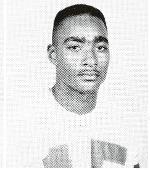
Famous HBCU Alumni
HBCU alumni made, and continue to make, a significant impact on American culture. There is nearly no field in which these alumni have not made a difference including social movements, religion, law and politics, education, business, and the arts and sciences. It is nearly impossible to list all of the significantly accomplished HBCU alumni. Certainly, it would take volumes to list them all. HBCUs are currently home to over 370,000 students. Below are a list of just a few of the most notable HBCU alumni and their contributions to American society:
- Martin Luther King, Jr., a Baptist minister and civil rights leader, graduated in 1948 from Morehouse College. His father and grandfather also attended Morehouse. He was the youngest man to receive the Nobel Peace Prize in 1964 at 35 years old. (NobelPrize.org).
- Thurgood Marshall graduated from Lincoln University in 1930. Although he applied to the University of Maryland's law school, he was denied admission because of the color of his skin. He attended Howard University instead and graduated in 1933. He later successfully sued the University of Maryland for its policy in the case of Murray v. Pearson. (Thurgood Marshall College Fund). Thurgood Marshall was the first African-American appointed to the Supreme Court of the United States. Clarence Thomas was the second.
- Booker T. Washington graduated from Hampton University in 1875. In 1881, he was invaluable in establishing Tuskegee University by acquiring the initial 100 acres of a former plantation. (Tuskegee University).
- Oprah Winfrey graduated from Tennessee State University (TSU). Although she was supposed to graduate in 1975, she was one credit short of completing her degree. When she already had a successful television program, she was invited to deliver the commencement speech at TSU but was determined to get that final credit first. In 1987, she completed her degree. (Stanford News).
- Toni Morrison graduated from Howard University in 1953 and then went on to Columbia. She is a Nobel Prize- and Pulitzer Prize-winning American novelist, editor and professor. (Biography.com).
- A graduate of West Virginia State University, Katherine Johnson, spent 33 years at NASA where she received the NASA Lunar Orbiter Award and three NASA Special Achievement Awards. She was named Mathematician of the Year in 1997 by the National Technical Association. Johnson is known for being a physicist, space scientist, mathematician, and for her accuracy in computerized celestial navigation. (NASA).
- The Deputy Chief Operations Officer in the Department of Energy's Office of Environmental Management, Cynthia V. Anderson graduated from Claflin University in 1980. (Forbes; U.S. Department of Energy.).
HBCUs are not just for Black students.
For those who would argue that HBCUs only serve the African-American population, significant evidence demonstrates that notion is far from the truth:
- African-Americans are less than 50% of the student body at Bluefield State College.
- African-Americans are 40% of the student body at Lincoln University.
- 71% of students are white and 21% are African-American at Gadsden State Community College.
- 50% of the student body at St. Philip’s College in Texas is Hispanic, only 13% is African-American.
- Nationwide, an average of one in four HBCU students is not African-American.
(Butrymowics.).
In The Words of Modern-day HBCU Alumni
Maurice Sholas, MD, PhD, the former medical director for Children's Health Care of Atlanta and currently the Principal of Sholas Medical Consulting LLC, graduated from Southern University in Baton Rouge, Louisiana. He went on to Harvard University where he received his M.D. and PhD in neuroscience. He remembers his HBCU experience fondly and expressed that the learning experience extended far beyond the textbooks and curriculum:
"That portion of my life was essential to my growth and development as a professional and as a person. It was the first time things were made for and tailored for me rather than me 'just making it work.' It was the first time I was not the smartest (read only) black guy in the room. And, it underscored the wonderful heterogeneity of blackness. Finally, it let the story of life be told from a perspective I had not heard in a formal (non family) setting."
Dr. Kenneth Poole, a senior associate consultant and physician at the Mayo Clinic, graduated from Tennessee State University. His undergraduate experience at an HBCU, like for hosts of other HBCU alumni, served him well in his achievement of an MD at a non-HBCU, Northwestern University. In addition, Dr. Poole holds an MBA degree from Washington University in St. Louis. Not only did he attend an HBCU for his undergraduate work but his wife did as well at Fisk University. According to Dr. Poole:
"...my experience at an HBCU resulted in four of the most personally enriching years of my life. The relationships that I formed with classmates and instructors alike were not ones that were based on race or participation in a minority interest group. Instead, they were based on common interest and personality. For four years, race was essentially neutralized, and my development as an adult was truly personalized. In addition, I was able to experience culturally distinct practices that are unparalleled at majority institutions: large Black fraternity/sorority life, Black college bands and football games...etc. I would not trade my experience for anything else."
Dr. Poole's wife also earned her master's degree in social work from Washington University.
Any claim that HBCUs are not as academically competitive as non-HBCUs is unfounded. Dr. Poole and Dr. Sholas are not anomalies. According to a study by Harold Wenglinsky:
- "By 1994, HBCU alumni were more likely to remain in graduate school or have achieved their PhD than alumni of traditionally white institutions (82% vs. 66%).
- HBCU alumni finished their PhDs faster (5.57 years) than their peers who had attended traditionally white instititions (6.14 years).
- HBCU alumni earned their PhDs at slightly higher rates than alumni of traditionally white institutions (21% vs. 18%), but the small numbers of African American PhDs in the database limited the significance of this finding."
Alexander Pierre Tureaud - Champion attorney for equal pay, desegregation, and voting rights
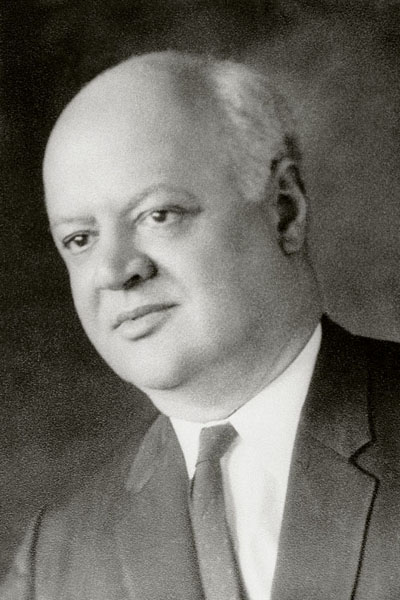
HBCUs rise to the challenge and exceed goals.
If the initial goal of Congress, in making provision for the establishment of HBCUs for newly-freed slaves, was to give them the ability to be "self-sufficient" and make use of their freedom for "the benefit of the Republic," then HBCUs have realized that goal thousands of times over in spite of 100 more years of institutionalized segregation and second-class citizenship that followed the end of slavery.
If we consider the Supreme Court's definition of the importance and value of education as the "key to good citizenship," then HBCUs excel at achieving a student body and alumni legacy that are continuing to make important contributions to their communities and the nation as a whole. HBCUs do not educate African-Americans, they educate Americans; and they do it with great success.
There was at least one HBCU alum, Thurgood Marshall (a lawyer) who was responsible for the dismantling of the entire system of Jim Crow in the case of Brown v. Board of Education Topeka. If changing an abusive and unjust government system is not enough of a contribution by a citizen, God knows what is.
Share your opinion
Should HBCUs be supported and valued?
Works Cited
Biography.com. "Toni Morrison Biography." 2015. http://www.biography.com/people/toni-morrison-9415590#synopsis. Access date: February 1, 2015.
Brown v. Board of Education of Topeka, 347 U.S. 483 (1952).
Butrymowics, Sarah. "Historically Black Colleges are Becoming More White." Time. June 27, 2014. http://time.com/2907332/historically-black-colleges-increasingly-serve-white-students/. Access date: February 2, 2014.
Forbes. "America's Best Colleges: #473 Claflin University." 2015. http://www.forbes.com/lists/2010/94/best-colleges-10_Claflin-University_94080.html. Access date: February 2, 2015.
Fryer, Jr., Roland G and Michael Greenstone, “The Causes and Consequences of Attending Historically Black Colleges and Universities,” National Bureau of Economic Research. Working Paper No. 13036, April 2007. http://www.nber.org/papers/w13036.pdf. Access date: February 2, 2015.
H.R. 613. “An Act to continue in force and to amend an Act to Establish a Bureau for the Relief of Freedmen and Refugees.” May 30, 1866. http://memory.loc.gov/cgi-bin/ampage?collId=llhb&fileName=039/llhb039.db&recNum=3607. Access date: February 1, 2015.
Lincoln University. "Langston Hughes: Class of 29." Langston Hughes Memorial Library. http://www.lincoln.edu/library/abouthughes.html. Access date: February 1, 2015.
Louisiana State University. "LSU Civil Rights Symposium Celebrates the Life of Legendary Civil Rights Leader A.P. Tureaud." 2012. http://www.lsu.edu/departments/gold/2011/04/tureaud.shtml Access date: February 2, 2015.
Lugo, Liza. How Do Hurricane Katrina's Winds Blow? Racism in 21st Century New Orleans. ABC-CLIO. 2014.
Murray v. Pearson, 169 Md. 478 (1936). http://www.law.umaryland.edu/marshall/specialcollections/murray/169mdr478.pdf. Access dae: February 3, 2012.
National Aeronautics and Space Administration (NASA). "Katherine Johnson: A Lifetime of STEM." 2013. http://www.nasa.gov/audience/foreducators/a-lifetime-of-stem.html#.VM72jGh4qf8. Access date: February 1, 2015.
NobelPrize.org. "The Nobel Peace Prize 1964: Martin Luther King, Jr. - Biography." http://www.nobelprize.org/nobel_prizes/peace/laureates/1964/king-bio.html. Access date: February 1, 2015.
Plessy v. Ferguson, 163 U.S. 537 (1896).
Poole, Kenneth, MD, MBA. Email to Liza Lugo, J.D. entitled "HBCU Thoughts." February 3, 2015.
Rogers Elliott, A. Christopher Strenta, Russell Adair, Michael Matier, and Jannah Scott, “The Role of Ethnicity in Choosing and Leaving Science in Highly Selective Institutions, ” Research in Higher Education, Vol. 37, No. 6. (1996). http://www.dartblog.com/documents/Elliott%20and%20Strenta.pdf. Access date: February 2, 2015.
Sholas, Maurice, MD, PhD. Email to Liza Lugo, J.D., entitled "HBCU Article." February 3, 2015.
Stanford News. "Oprah talks to graduates about feelings, failure and finding happiness." Stanford Report. June 15, 2008. http://news.stanford.edu/news/2008/june18/como-061808.html. Access date: February 1, 2015.
The Higher Education Act of 1965 (HEA) (Pub.L. 89–329). http://legcounsel.house.gov/Comps/HEA65_CMD.pdf. Access date: February 1, 2015.
Thurgood Marshall College Fund. "Justice Thurgood Marshall History." 2012. http://www.thurgoodmarshallfund.net/about-tmcf/thurgood-marshall-history. Access date: February 1, 2015.
Tuskegee University. "Legacy of Leadership: Dr. Booker Taliaferro Washington." 2015. http://www.tuskegee.edu/about_us/legacy_of_leadership/booker_t_washington.aspx. Access date: February 1, 2015.
Tuskegee University. "Legacy of Fame: Lionel Richie." 2015. http://www.tuskegee.edu/about_us/legacy_of_fame/distinguished_alumni/lionel_richie.aspx. February 2, 2015.
U.S. Commission on Civil Rights. "The Educational Effectiveness of Historically Black Colleges and Universities." 2010. http://www.usccr.gov/pubs/HBCU_webversion2.pdf. Access date: February 2, 2015.
U.S. Department of Education. "Historically Black Colleges and Universities and Higher Education Desegregation." March 1991. http://www2.ed.gov/about/offices/list/ocr/docs/hq9511.html. Access date: February 1, 2015.
U.S. Department of Energy. "About Us: Cynthia V. Anderson - Chief Operations Officer." 2015. http://energy.gov/contributors/cynthia-v-anderson. Access date: February 2, 2015.
U.S. News and World Report. "Historically Black Colleges and Universities Ranking." 2015. http://colleges.usnews.rankingsandreviews.com/best-colleges/rankings/hbcu. Access date: February 1, 2015.
Wenglinsky, Harold. "Historically Black Colleges and Universities: Their Aspirations and Accomplishments.” Policy Information Center, Educational Testing Service. 1999. http://www.aypf.org/publications/rmaa/pdfs/HistBlackCollege.pdf. Access date: February 3, 2015.
White Goode, Robin. “The HBCU Debate: Are Black Colleges & Universities Still Needed?” Feb. 1, 2015. BlackEnterprise.com. http://www.blackenterprise.com/lifestyle/are-hbcus-still-relevant/. Access date: February 1, 2015.
The White House. "White House Initiative on Historically Black Colleges and Universities School Directory." Sept. 2014. http://www.ed.gov/edblogs/whhbcu/files/2014/09/HBCU-Directory.pdf. Access date: February 1, 2015.
Winston-Salem State University (WSSU). "Yancy Thigpen Bio." http://winstonsalem.prestosports.com/about/hall_of_fame/Hall_of_Fame_Bios/Yancy_Thigpen_Bio. Access date: February 1, 2015.
Special thanks to Dr. Maurice Sholas and Dr. Kenneth Poole for sharing their personal stories with this author.
By Liza Lugo, J.D.
© 2015. All Rights Reserved.
Ms. Lugo retains exclusive copyright and publishing rights to all of her articles and photos by her located on Hub Pages. Portions of articles or entire content of any of these articles may not be used without the author's express written consent.Persons plagiarizing or using content without authorization may be subject to legal action.
This author served nearly a decade as a college admissions professional at proprietary institutions.
Permission requests may be submitted to liza@lizalugojd.com.
Published February 2, 2015. Corrections made February 3, 2015.






